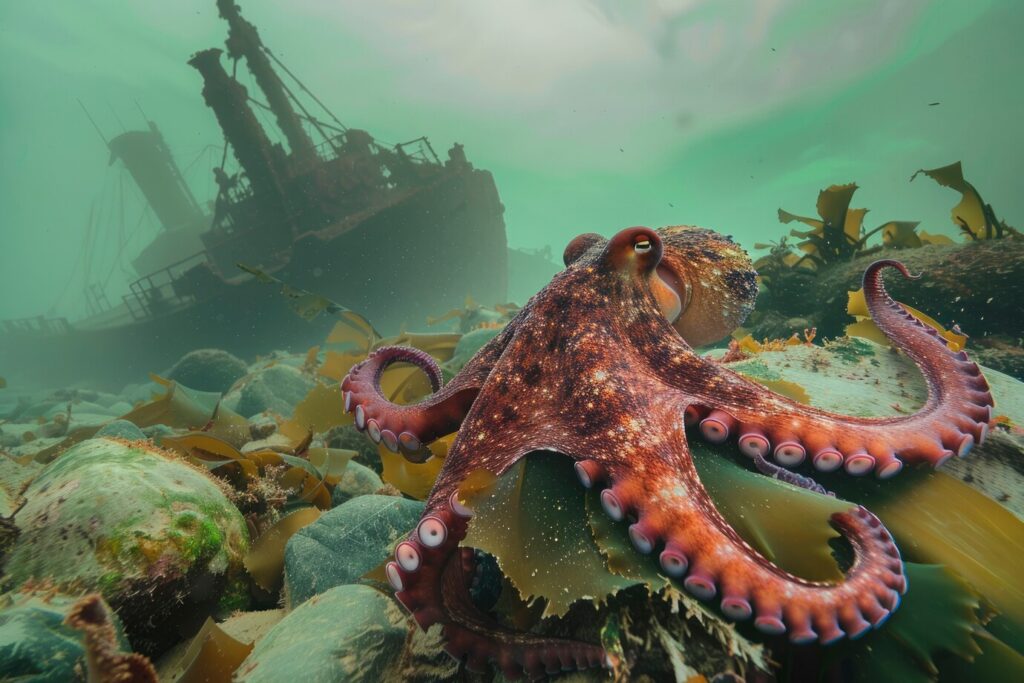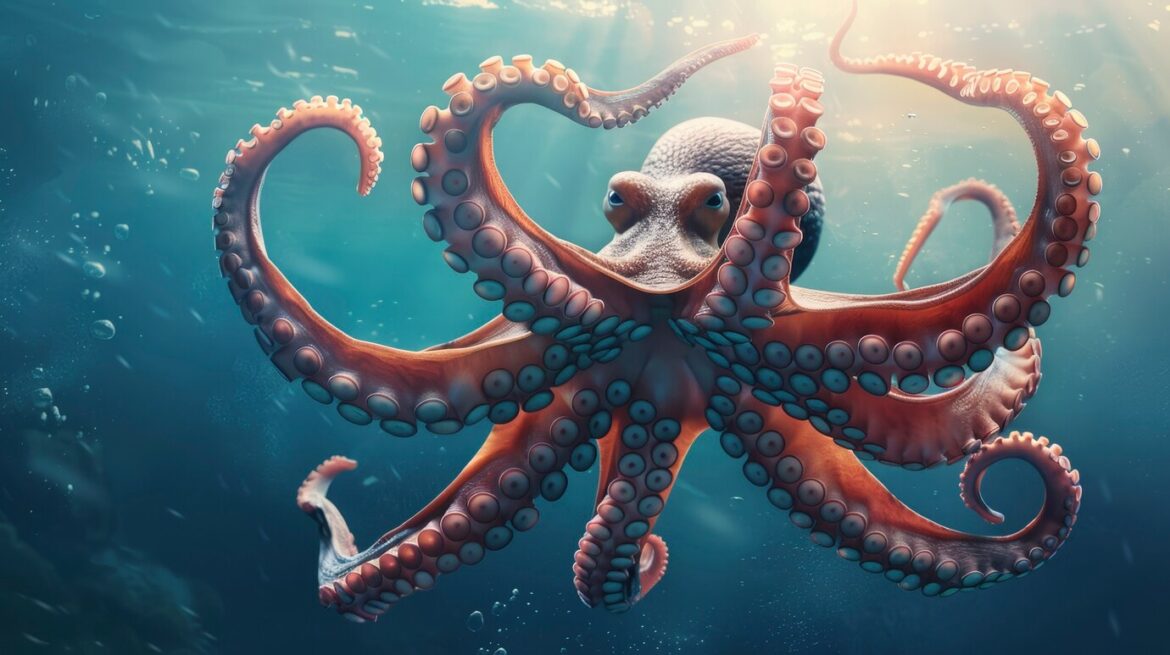The ocean is home to some of the most mysterious and fascinating creatures, and among them, the octopus stands out for its intelligence and adaptability. But have you ever wondered about the largest octopus ever recorded? These deep-sea giants captivate scientists and ocean enthusiasts alike, with their massive size, unique abilities, and intriguing behaviors.
Understanding the Giant Pacific Octopus
When discussing the largest octopus in the world, the Giant Pacific Octopus (Enteroctopus dofleini) takes the spotlight. This species holds the record for the biggest octopus ever discovered, reaching staggering sizes that leave marine biologists in awe. Typically found in the North Pacific Ocean, this colossal cephalopod thrives in deep, cold waters.
The Largest Octopus Ever Recorded
The title of the largest octopus ever recorded belongs to a Giant Pacific Octopus weighing an incredible 600 pounds and measuring 30 feet across. Most individuals of this species grow up to 16 feet and weigh around 110 pounds, but this record-breaking octopus far exceeded those averages.
How Do These Octopuses Grow So Large?
Several factors contribute to the enormous size of the Giant Pacific Octopus:
- Cold Water Habitat: The cold waters of the Pacific help slow down their metabolism, allowing them to grow larger over time.
- Longevity: Unlike smaller species that live only 1-2 years, the Giant Pacific Octopus can live up to five years.
- Diet: Their diet consists of crustaceans, fish, and even small sharks, providing them with essential nutrients to support their growth.
Unique Features of the Giant Pacific Octopus
This species is not only the largest octopus in the world but also one of the most intelligent marine creatures. Some of their fascinating characteristics include:
Camouflage Abilities
Giant Pacific Octopuses can change their color and texture to blend seamlessly with their surroundings, helping them evade predators and ambush prey.
Problem-Solving Skills
Studies have shown that these octopuses can navigate mazes, open jars, and even recognize individual human faces.
Regeneration
Like all octopuses, they can regrow lost limbs, a survival mechanism that helps them escape from predators.

The Role of the Giant Pacific Octopus in Marine Ecosystems
As apex predators, these octopuses play a vital role in maintaining the balance of the marine ecosystem. They help regulate populations of crustaceans and fish, ensuring ecological stability.
Additionally, they serve as prey for larger marine creatures, including sharks and sperm whales, making them a crucial part of the oceanic food web.
Conservation Status and Threats
Despite their size and intelligence, Giant Pacific Octopuses face several threats, including:
- Climate Change: Rising ocean temperatures and acidification affect their habitat and food sources.
- Pollution: Plastic waste and chemical pollutants in the ocean harm octopus populations.
- Overfishing: While they are not currently endangered, excessive fishing of their prey species can indirectly impact their survival.
Efforts to protect marine habitats and regulate fishing practices are crucial to preserving these incredible creatures for future generations.
Conclusion
The largest octopus ever recorded remains a testament to the wonders of the deep sea. As we continue to explore the ocean, we uncover more about these fascinating animals and their crucial role in marine ecosystems. The largest octopus in the world, the Giant Pacific Octopus, continues to amaze scientists and divers with its intelligence, adaptability, and sheer size. Protecting these magnificent creatures is essential to maintaining the delicate balance of ocean life.
FAQs
1. What is the largest octopus ever recorded?
The largest octopus ever recorded was a Giant Pacific Octopus measuring 30 feet across and weighing 600 pounds.
2. Where can the largest octopus in the world be found?
The Giant Pacific Octopus is primarily found in the cold waters of the North Pacific Ocean, from Japan to the coast of North America.
3. How long do Giant Pacific Octopuses live?
They typically live up to five years, which is longer than many other octopus species.
4. Are Giant Pacific Octopuses dangerous to humans?
No, they are not dangerous to humans. They are generally shy and prefer to avoid contact with divers.
5. What do Giant Pacific Octopuses eat?
They primarily feed on crabs, fish, shrimp, and even small sharks.

